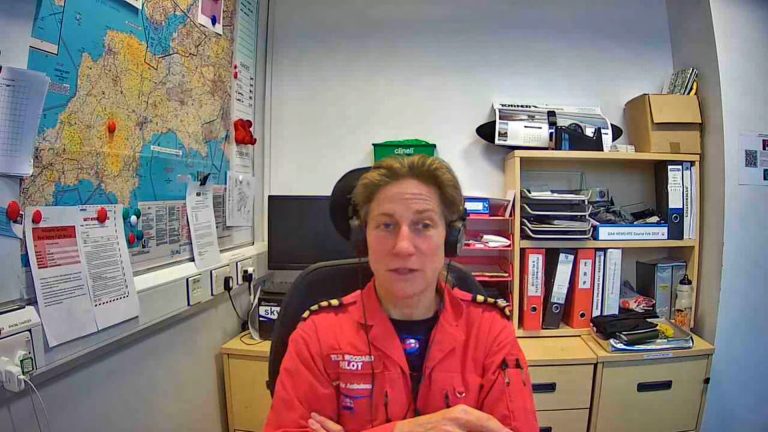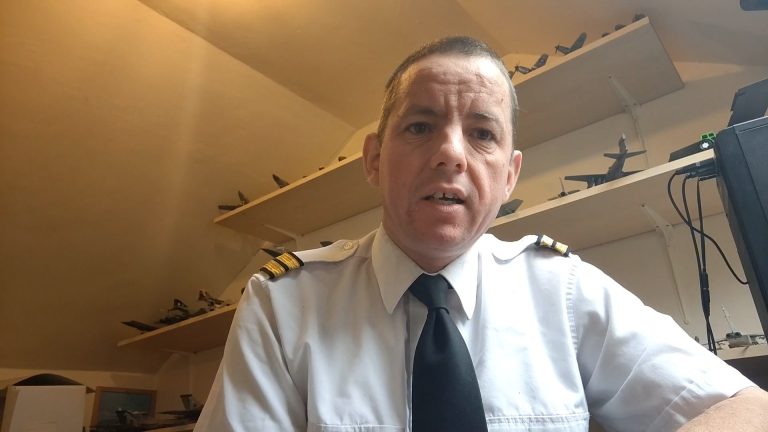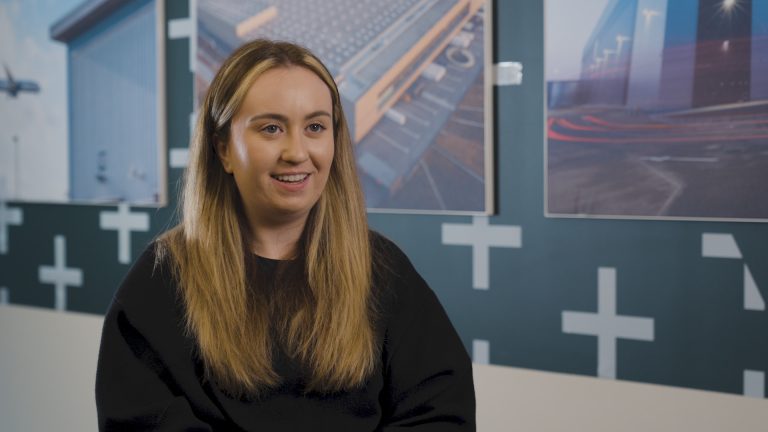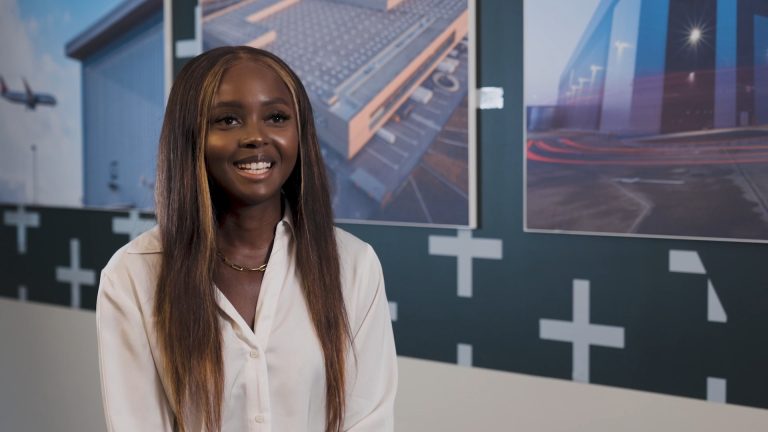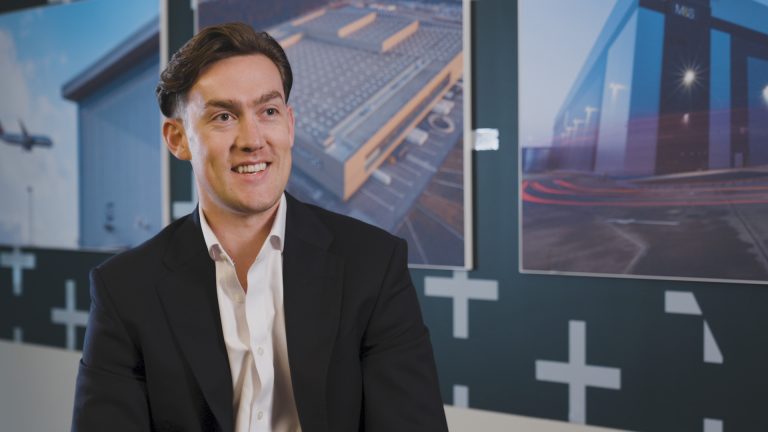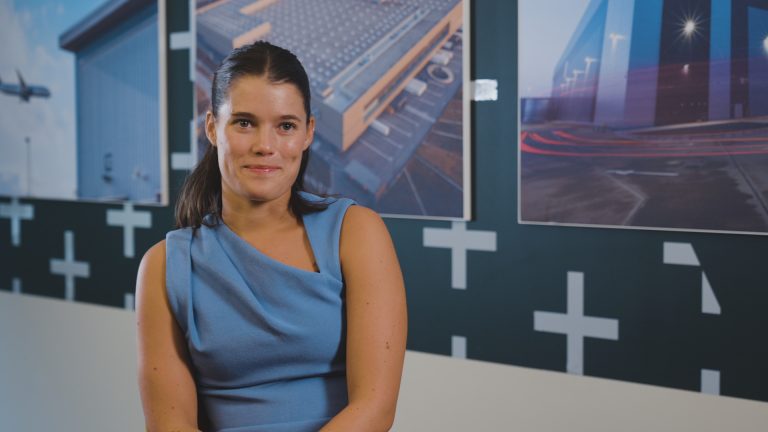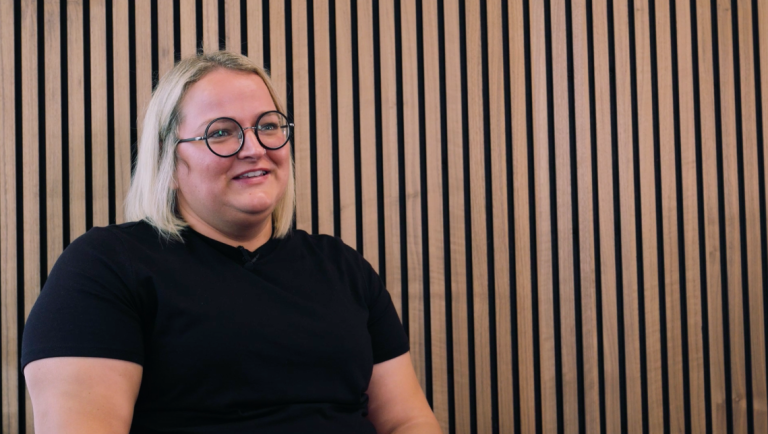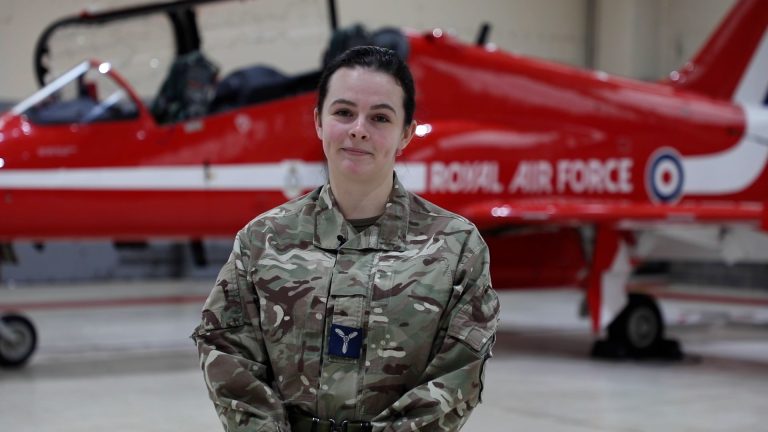Explore: Transport and logistics
Airline Captain (pilot)
Easyjet
info Issues viewing the video?
icould and Inspiring the Future
Michelle, Airline Captain
Easyjet
| Time Code | Audio |
| 00:00:06 | Hello everyone, my name is Michelle and I’m an airline pilot. I work for Easyjet and I’m based out of London, Gatwick. I fly the Airbus A319 and A320 and that can hold up to 186 passengers. |
| BECOMING AN AIRLINE PILOT | |
| 00:00:20 | I’ve always loved flying and I’ve always loved planes. From a very young age I was lucky enough to be flying backwards and forwards from Kenya to visit my family. But it wasn’t until I was about 13 or 14 that I decided that I wanted to be an pilot,so I’ve been at Easyjet now for 10 years and I’ve actually been a Captain for 5 years and I’ve got round about 7,500 hours flying the Airbus A319 and A320. |
| 00:00:44 | Every flying school and airline has a slightly different selection process but in general what they like to see when you’re thinking about becoming a pilot is having good grades in Maths and good grades in Physics. So those are the kind of subjects that I would focus on. As well as all of your academic studies, it’s great to have other things on the side of your studies as well. |
| 00:01:04 | One of the biggest barriers to becoming a pilot is the cost. It costs a lot of money to become a pilot. You know, training school is very expensive and then once you join an airline, you may have to pay for additional training. |
| SKILLS | |
| 00:01:15 | Some of the skills that you need as a pilot can include good teamwork skills, communicating skills, problem solving skills and I think, as an airline captain, because it’s my job to look after everyone, it’s really important that I’m able to lead the team and I’m able to make good decisions. |
| BEING AN AIRLINE PILOT | |
| 00:01:31 | So there’s lots of responsibility involved in my job because I can be looking after up to 200 people and sometimes it can get quite intense and it can be quite serious because sometimes we can be on the plane together with the crew and the passengers, you know, for 6 hours in a go and with the crew we need to bring that aeroplane back, so we sometimes have 13 to 14 hour days. So it’s really important that as a team leader, I make sure everyone has a good day and everyone enjoys themselves.. |
| 00:01:59 | There’s lots of paperwork involved with my job as well and that includes the flight time, how heavy the aircraft is, what kind of weather we’re going to be expecting en route and if there’s any special considerations, anything else that we need to consider for that day. And even though I have to get up so early sometimes, when I’m at work and I’m surrounded by all of these lovely people, it really makes it worth it. |
| 00:02:22 | END OF TRANSCRIPTION |
“I’ve always loved flying and I’ve always loved planes. From a very young age I was lucky enough to be flying backwards and forwards from Kenya to visit my family.” After A-levels in maths, chemistry, German and PE, Michelle gained a degree in chemistry and then took an 18-month flying course to train as a pilot.
More information about Ship and hovercraft officers
Data powered by LMI For All
£57,720
average salary
The UK average salary is £29,813
43
average weekly hoursThere are 37.5 hours in the average working week
94%
male
6%
female
The UK workforce is 47% female and 53% male
Future employment
Future employment
Description
Ship and hovercraft officers command and navigate ships and other craft, co-ordinate the activities of officers and deck and engine room ratings, operate and maintain communications equipment on board ship and undertake minor repairs to engines, boilers and other mechanical and electrical equipment.
Qualifications
Entrants usually possess GCSEs/S grades and A levels/H grades. Good colour vision without spectacles or contact lenses is required for some posts and candidates must undergo a medical examination. Training lasts three to four years and combines taught courses and assessed training at sea.
Tasks
- Allocates duties to ship’s officers and co-ordinates and directs the activities of deck and engine room ratings
- Directs or undertakes the operation of controls to inflate air cushions, run engines and propel and steer ships, hovercraft and other vessels
- Locates the position of vessel using electronic and other navigational aids such as charts and compasses and advises on navigation where appropriate
- Monitors the operation of engines, generators and other mechanical and electrical equipment and undertakes any necessary minor repairs
- Maintains radio contact with other vessels and coast stations
- Prepares watch keeping rota and maintains a look-out for other vessels or obstacles
- Maintains log of vessel’s progress, weather conditions, conduct of crew, etc
Employment by region
Top 10 industries for this job
Warehousing, etc
5683
Wholesale trade
2653
Other trans. equipment
2122
Sale of motor vehicles
2114
Rubber & plastic
1777
Water transport
1367
Architectural & related
1288
Employment status
Related career stories
⇦
⇨



